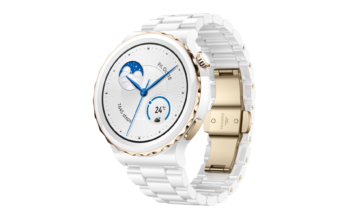
The man who killed eight people, six of them Asian-American women, at spas in Atlanta told police he had a “sexual addiction.” Other men have said the same after committing rapes or other crimes, but sex addiction is not recognized as a real disorder by most professionals and it certainly does not excuse a person from horrific acts.
Some people who claim to have a sex addiction may be hiding behind the term as an excuse; others may truly believe themselves to have a problem. (The Washington Post points out that Ted Bundy and Harvey Weinstein are among those who have claimed to have a sex addiction, and that Tiger Woods checked himself into rehab after having several affairs.)
But sex addiction is an outdated diagnosis that does not appear in the current diagnostic manual for mental health professionals, the DSM-5. As CNN explains, so-called sex addiction isn’t anything like addiction as we know it. For example, sex doesn’t activate the same pathways in the brain as addictive drugs, and you can’t develop tolerance to it or withdrawal from it.
What are people experiencing if it’s not addiction?
The people most likely to think they have sex addictions are not people who have a lot of sex, but rather people who have religious or negative views about sex, Joshua Grubbs, a researcher who studies beliefs about morality and behavioral “addictions,” writes at the Conversation. He has even done research specifically that connection:
In fact, we’ve now shown in two studies that used nationally representative samples that religiosity and moral disapproval of pornography amplify the links between pornography viewing and feelings of addiction to pornography. For people who do not find pornography morally objectionable or who are nonreligious, there is virtually no link between how much pornography they view and whether they believe themselves to be addicted to it. Yet, for people who are very religious or who find pornography viewing to be especially wrong, even small amounts of pornography use are linked to self-reported feelings of addiction.
G/O Media may get a commission
People who have these feelings and are unhappy with their sexual urges may indeed need psychological help, but that doesn’t mean treating them as if they have an addiction.
The World Health Organization recognizes a compulsive sexual behavior disorder, which they describe as a “persistent pattern of failure to control” impulses or urges. It’s grouped with other behavior control disorders, including those where people cannot control their gambling or where they pick compulsively at their skin. As for sexual behaviors, the WHO notes:
Distress that is entirely related to moral judgments and disapproval about sexual impulses, urges, or behaviours is not sufficient to meet this requirement.
Meanwhile, the American Association of Sexuality Educators, Counselors and Therapists (AASECT) has a position statement on sex addiction in which they explain why they don’t treat sexual behaviors in an addiction-based framework:
AASECT recognizes that people may experience significant physical, psychological, spiritual and sexual health consequences related to their sexual urges, thoughts or behaviors. AASECT recommends that its members utilize models that do not unduly pathologize consensual sexual behaviors. AASECT 1) does not find sufficient empirical evidence to support the classification of sex addiction or porn addiction as a mental health disorder, and 2) does not find the sexual addiction training and treatment methods and educational pedagogies to be adequately informed by accurate human sexuality knowledge. Therefore, it is the position of AASECT that linking problems related to sexual urges, thoughts or behaviors to a porn/sexual addiction process cannot be advanced by AASECT as a standard of practice for sexuality education delivery, counseling or therapy.
So, while sex addiction is absolutely not an excuse or a reason for committing crimes, people can definitely have mental distress relating to sex and their feelings about it. As Grubbs points out, millions of Americans believe their sexual behaviors may be out of control, and they don’t murder people when they have a bad day.
If you feel that you are addicted to sex, it may still be helpful to seek out professional mental health help. The U.S. Substance Abuse and Mental Health Services Administration has a national hotline that can connect you with treatment.



